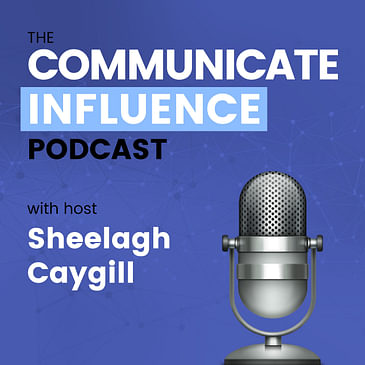Imagine giving an important presentation and suddenly hearing a strange noise coming from the back of the room.
It takes only moments to discover that the sound is loud snoring from a man who's dozed off. Yes, someone has fallen asleep during your presentation.
Any presenter would feel badly. But only a handful would feel so affected y the experience that they'd eventually go on to write a book about storytelling, and the importance of storytelling in business.
Why storytelling in business matters
Colleen Stewart, author of The Story Compass: Navigating Through Uncertainty In Your Business, says that when we're at work we don't understand the power of story. "On a conscious level we don't talk about it that way. And so we don't always go to it automatically."
Colleen says that in almost any setting just presenting a list of features in bullet-point form isn't going to persuade, convince, or be memorable.
"It's not captivating, it's not easily remembered, and it doesn't immediately communicate meaning."
To use the power of story we need to first of all "Talk about it, pull it out, open it up, and look at it for what it is and really understand how stories work. And then we can do it with more intention in business."
Businesses have moved away from storytelling but are recognizing that they need to get back to storytelling, and Colleen thinks it's almost become a bit of a buzzword.
"There is a gap in our knowledge now of what a story actually is. So it's fine to say, as a business, okay, we have to tell a story, we have to make an emotional connection, we're going to communicate in a way that is relatable, we're going to communicate in a way that creates mental pictures.
"Wonderful, but how do you do that? And that's the answer that I think is often missing, with a lot of services and, and consulting programs and efforts by marketing teams is that they don't actually know how to do it. And that's not a criticism. It's just, I think it's the reality.
Interpret what you know to give value to clients
The mistake many consultants make in a first meeting or presentation is simply sharing all the knowledge they have.
Your audience doesn't want to know everything you know. They don't have the time or the attention span for that. What they want to hear is how you interpret what you know into something meaningful for their world. How are you going to solve the problem with them and for them with what you know?
Colleen Stewart
Four types of stories: Vision, Knowledge, Value, and Journey
When Colleen began working with clients on storytelling for their businesses, they'd say this is great, but that they didn't have any stories to tell. That was the seed that planted the idea for the book.
She has identified four story types that every business can share: Vision stories, knowledge stories, value stories, and journey stories.
"We come back out of there and to a point where we're transformed, we know something new, maybe we have a new offering as a business that we can then share with the world. "
Find Colleen on Linkedin. Her business is Perfect Pitch, based near Toronto, Canada. Be sure to read The Story Compass: Navigating Through Uncertainty In Your Business.
<a rel="payment" href="https://www.buymeacoffee.com/communicatein
